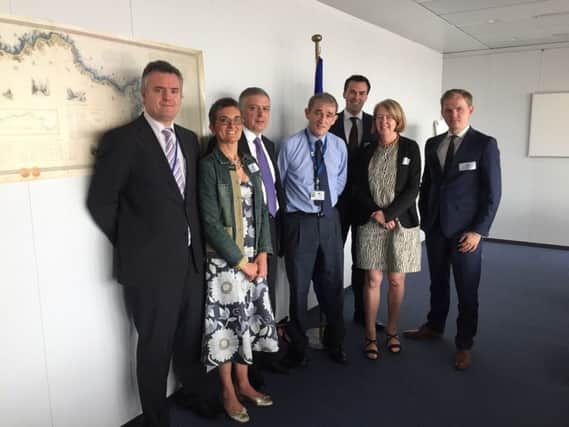UFU in Brussels for key dairy meeting


The meeting focussed on the dairy aid package, due to be announced on 18 July, by the farm commissioner, Phil Hogan.
The UFU represented the UK as part of a delegation that included Dutch, Danish, German and Republic of Ireland farming organisations. It met one of the key officials Tom Tynan from Commissioner Hogan’s cabinet.
Advertisement
Advertisement
“We stressed that the Commissions package must offer a range of measures, including support for structural investments that encourage farmers to become more competitive and should not be limited to the single condition of cutting milk output,” said Mr Irvine.
At the meeting the Commission underlined its determination to tackle the problems in the dairy sector, but made clear that the new support package would come with conditions. The delegation however stressed that while supply and demand have been out of balance, markets are moving back towards a better balance.
“Commodity prices are recovering with the UFU milk price indicator rising from 17.2 to nearly 19 pence a litre in the past fortnight, reflective of recovering commodity prices and exchange rate movement, post EU referendum result.
“Crucially, milk production is now beginning to slow down, with the UK average daily production in mid-June nine per cent down on last year,” said Mr Irvine.
Advertisement
Advertisement
He added that as the UK heads towards Brexit, cutting production locally would leave the Northern Ireland industry in danger of losing export opportunities, while opening the UK market to even more imported dairy products.